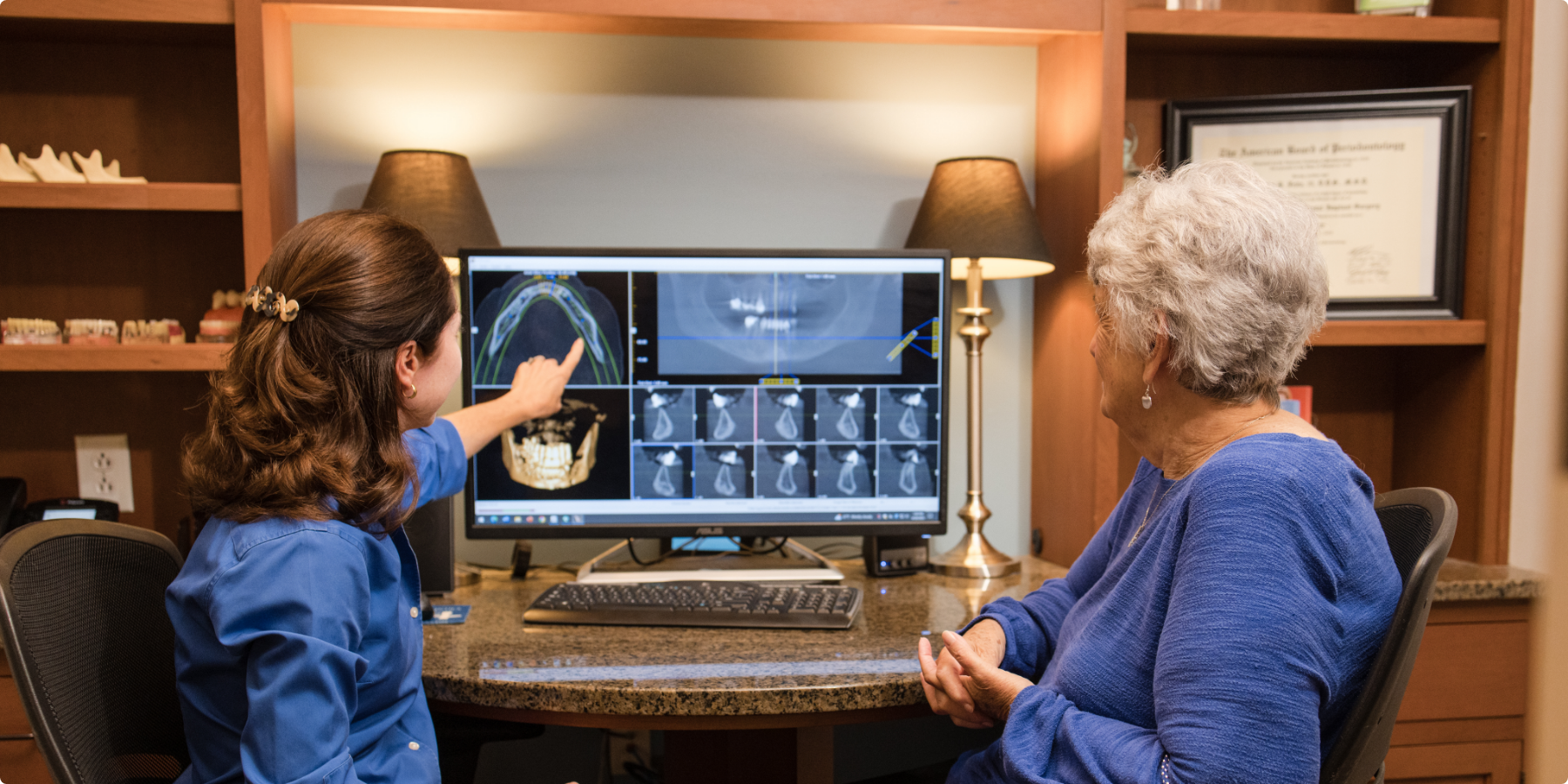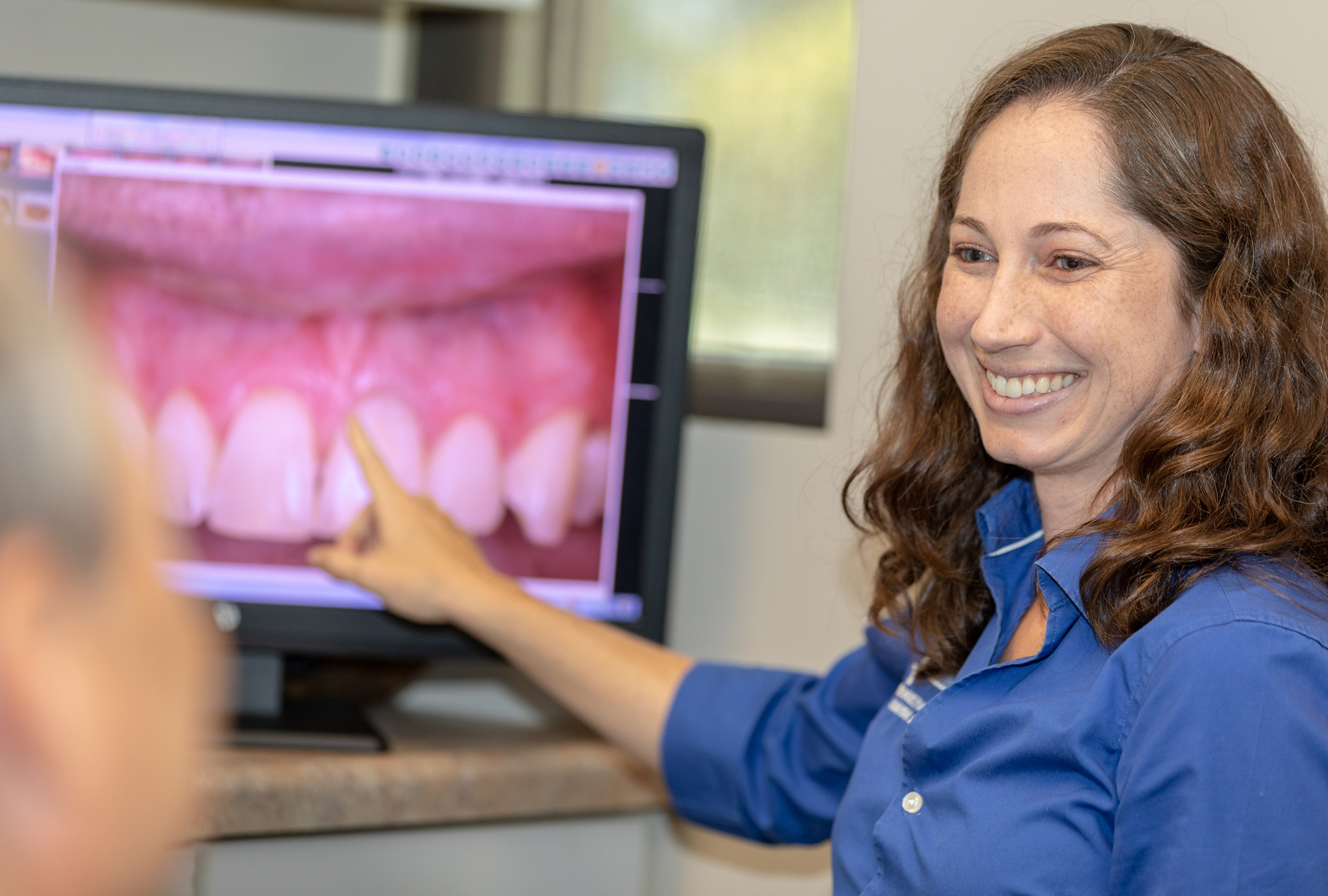
At Chattanooga Periodontics & Dental Implants, Dr. Randall helps prevent, detect, and treat periodontal disease (gum disease) in Chattanooga, TN, and Dalton, GA. Gum disease often has no signs or symptoms until it has progressed to an advanced stage. Understanding periodontal disease and how it affects your teeth and overall well-being can help you prioritize gum health through gum disease treatment. Dr. Randall is a periodontist—a gum specialist with advanced training in the tools and techniques to prevent and control periodontal disease.
What Is Periodontal Disease?
Periodontal disease is inflammation and infection of the soft tissues and bone surrounding and supporting your teeth. Naturally occurring bacteria in the mouth mix with starches and sugars from food, forming a sticky film called plaque. Without regular flossing and brushing, plaque clings to the teeth and hardens into tartar or “calculus”. The bacteria travel beneath your gumline, causing inflammation and infection. Gum disease occurs in two stages, gingivitis and periodontitis. Sometimes, periodontal disease even affects people with good oral hygiene habits.
How Does Gum Disease Affect My Health?
Periodontal disease affects more than your teeth, gums, and supporting bone; it affects your overall well-being. Studies show a link between periodontal disease and other systemic diseases. Also, gum disease can affect teeth function and your quality of life, making gum disease treatment a critical part of your healthcare needs.
What Can I Do If I Have Gum Disease?
If you think you have gum disease, schedule an appointment with Dr. Randall for an evaluation and accurate diagnosis. One of our periodontists will explain your options for controlling the condition and develop a gum disease treatment plan.
- Gingivitis Treatment – Your treatment will include one of several non-surgical cleaning techniques to remove plaque and tartar buildup near tooth roots.
- Periodontitis Treatment – Your treatment may start with scaling and root planing. In addition to scaling and root planing, advanced gum disease may require laser gum treatment, gum grafting, or gum flap surgery.
How Do I Stop Periodontal Disease?
Periodontal disease is preventable and treatable.

Preventing Gum Disease – You can protect your oral health with thorough oral hygiene. The American Academy of Periodontology recommends flossing at least once daily and brushing twice daily. Floss first to remove food particles and plaque between your teeth and along the gum line. Some patients also want the reassurance of a comprehensive periodontal evaluation from Dr. Randall and schedule yearly visits.
Controlling Gum Disease – After gingivitis or periodontitis treatment, your maintenance program may include getting exams and cleanings from your dentist and hygienist more often. Maintaining the schedule will help prevent gum disease flare-ups.
Start Protecting Your Periodontal Health
Optimal gum health begins at home with regular brushing and flossing. Still, if you think you have periodontal disease, Dr. Randall at Chattanooga Periodontics & Dental Implants can evaluate your gum health. She develops gum disease treatment plans for patients in Chattanooga, TN, and Dalton, GA, protecting or restoring their health from gingivitis and periodontitis. Call (423) 756-2450 today or complete our contact form to request a consultation, exam, or comprehensive periodontal evaluation.
